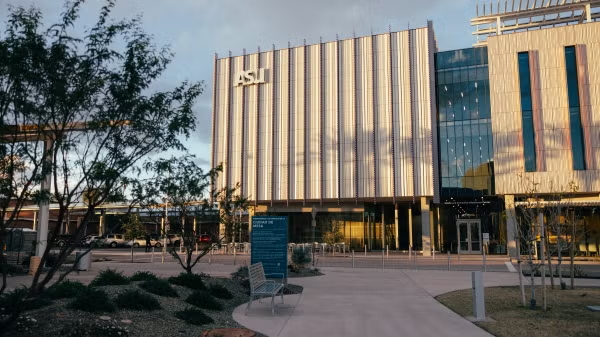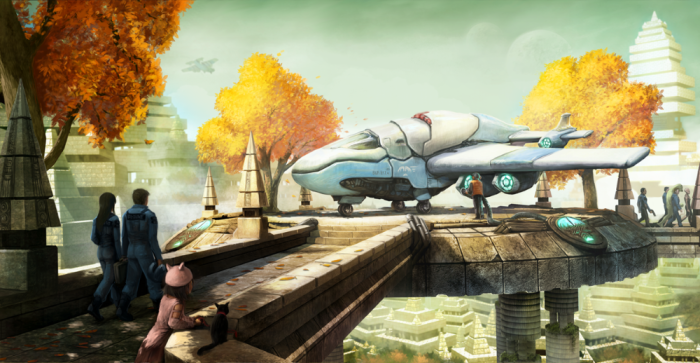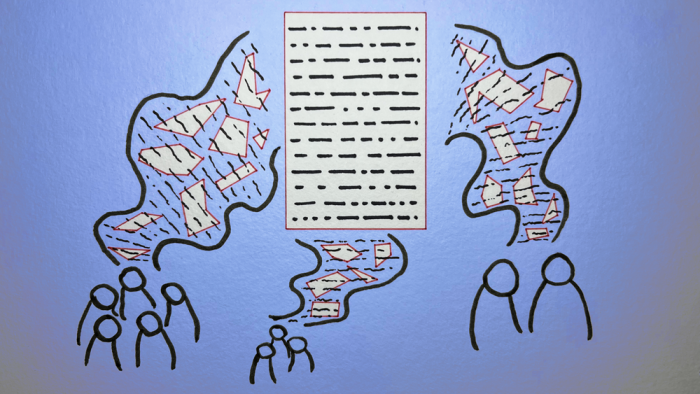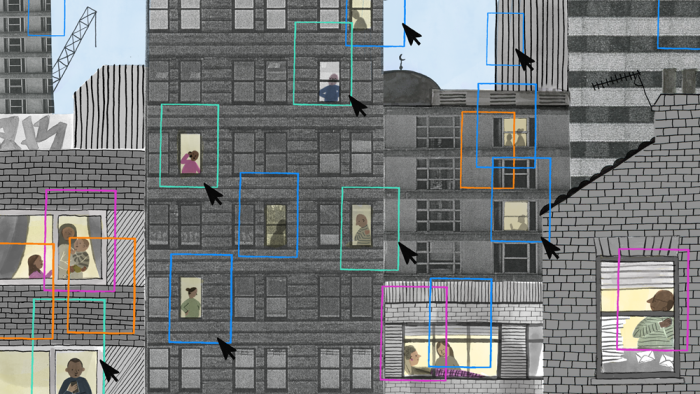Generative AI in the humanities classroom

Image by Mohamed Hassan/PxHere
Since the public launch of ChatGPT in late 2022, media has reported on both the “death of the essay” and the possibilities for an educational revolution.
But Arizona State University’s partnership with chatbot creator OpenAI, announced Jan. 18, is neither the beginning nor the end of its engagement with artificial intelligence.
There is much to say on how generative AI will shape the future of education. While pundits and policymakers do their thing, teachers do theirs.
At ASU, a university that continues to claim its No. 1 spot in innovation, the humanities are at the forefront of explorations of AI. To wit: AI will be soon — or already has been — incorporated into many Department of English courses and initiatives in a meaningful way.
“Students are currently using AI in their English classes to brainstorm topics; to get help with researching, organizing and editing their papers; and to solicit advice about second-language use,” said Krista Ratcliffe, chair of the Department of English. “In these ways, AI can serve as a powerful invention tool. But students need to develop the critical capacities of AI literacy, so that they may evaluate AI outputs as well as how and when to use them effectively.”
In other words, the department is not moving forward heedlessly.
Department of English faculty have long used digital tools in the classroom, but — perhaps having read, watched, researched and critiqued a plethora of cautionary AI tales — they’re understandably circumspect. As such, matters of fairness, ethics, creativity, scale, practicality and even economics are topics being wrestled with in department policy and in current and upcoming courses.
Toward AI literacy
Among new introductions to the department’s syllabuses from this academic year forward is an option to include parameters around the use of AI in its courses, consistent with an ASU Provost’s Office policy. This is not a prescriptive model; writing teachers can require students to disclose and cite their use of AI or can even forbid its use in the course entirely.
Furthermore, a large, cross-sectional Humanities Institute research study, currently in development, encourages teachers to test the use of various generative AI platforms with their students — a practice likely to be underway soon in some English composition classrooms.
Institute Director Ron Broglio and Professor of English Kyle Jensen, director of ASU Writing Programs, are principal investigators in the AI Academic Integration study. Jensen said the research is necessary because, while the possibilities seem limitless, the scale is so massive that “there isn’t a concentrated sense of what the technology can do yet. Its applications and value are still up in the air.”
Facilitated through ASU Writing Programs, with support from ASU’s Learning Engineering Institute and Enterprise Technology, and funding from the National Endowment for the Humanities, the study will look at the impact of the voluntary use of generative AI platforms in ASU composition classes. Initially, the group of 27–30 teachers will focus on two main platforms: Wordtune and ChatGPT.
Jensen expects much of what will be gleaned in the early days is learning how to “prompt engineer” AI queries in order to get more specific and usable results.
The end result? AI literacy, a term and concept that Jensen stresses heavily.
“The goal of such work,” he said, “is to help students and teachers incorporate generative AI technologies responsibly and in accordance with their discipline's best practices.”
Business communication gets a reboot
Kathleen Hicks, a teaching professor and director of online programs for English, is leading a spring 2024 special section of ENG 302: Business Writing for students in the W. P. Carey School of Business. The curriculum is not only a test case for how to use AI in the writing classroom, it is actually helping discover the possibilities and limits of the technology itself. Students in this section of ENG 302 are required to utilize either ChatGPT or Wordtune to complete various assignments, then submit feedback comparing and contrasting those experiences.
The course also includes in-depth discussions of ethical considerations. In this vein, Hicks’ motto is “Just because we can doesn’t mean that we should” — meaning that with each advance must come consideration of consequences.
Unsurprisingly, Hicks used generative AI in creating this version of ENG 302, which she said was helpful in constructing mock scenarios on which her students will base business proposals.
Overall, though, Hicks said using the technology in the course design did not make the process easier, shorter or take the place of having content and pedagogical expertise. But it did help her narrow her thinking.
“It was a matter of continually going back and forth, refining what the output was based on my own understanding of what I wanted students to grasp,” she said.
Integration, fall 2024 and beyond
It’s not a one-size-fits-all solution, and in many cases, AI may complicate the learning environment rather than enhance it.
But the Department of English’s motto, “Start here; go anywhere,” wouldn’t be true if it didn't embrace unexpected directions.
With that in mind, here are several fall 2024 humanities courses that consider, utilize, embrace, resist, test or interrogate artificial intelligence.
FMS 360: Media Genres — Sci-Fi Cinema (Technology, Genre and Culture)
What it is: FMS 360: Media Genres — Sci-Fi Cinema (Technology, Genre and Culture) is an ASU Online course exploring the sci-fi film as an enduring tradition — one that often reflects back our own cultural anxieties and hopes.
Sci-fi enthusiasts will get to screen canonical films like “2001: A Space Odyssey” (1968), based on a short story by Arthur C. Clarke, and encounter the AI character “HAL,” who certainly embodies our darkest fears for the technology; and “Blade Runner” (1982), an adaptation of a novel by Philip K. Dick, which contrasts a version of humanity as we know it with an expanded one that includes an AI who feels, dreams, fears and hopes.
Why it matters: The course has a unit dedicated specifically to AI and the opportunities and perceived dangers surrounding it. But AI as a broad concept can be found in questions the class asks about identity and as an aspect of sci-fi's ongoing reckoning with technology. The class covers a range of topics including humanity's use and misuse of technology, the idea of interactions with what’s “alien,” tensions between utopian versus dystopian visions of the future, and questions of identity, being and existence.
Who’s in charge: Assistant Teaching Professor Joshua Vasquez, a film and media studies scholar, leads this course. Instructor Michelle Martinez, who regularly teaches ASU courses on horror films, created the AI-focused module.
Who should take it: FMS 360 is open to undergraduates who have met basic first-year composition requirements and who are interested in sci-fi as a genre, in film studies more broadly, and in the relationships between media texts and the cultures that produce them.
If you register: FMS 360: Media Genres — Sci-Fi Cinema is offered twice in fall 2024 through ASU Online, once in session A (class #73162) and once in session B (class #73161).
CTE 110: Introduction to Culture, Technology and Environment
What it is: CTE 110: Introduction to Culture, Technology and Environment is a core course for students in a new pan-humanities major that launched on the Tempe campus last fall. “Technology” as a general concept is at the heart of the degree, and of this class, but the emergence of readily available large language models has focused the aim more completely. CTE 110 explores technology in relation to human culture and the human future. Students are encouraged to question, and perhaps embrace, AI’s potential for good while also remaining skeptical about its limits and fallibility.
Why it matters: Humankind's use of technology has resulted in a huge cultural shift, one that has many benefits but sometimes comes with devastating effects. Even students who are “digital natives” must grapple with the possibility of immense change in this new era. CTE 110 offers the chance to anticipate and develop solutions for potential ethical and social problems that AI may bring in the coming years.
Who’s in charge: Regents Professor Jonathan Bate, an internationally renowned sustainability and environmental humanities scholar and the lead designer of the CTE major, is teaching the online version of the course. It will also be offered in person on the Tempe campus, taught by Assistant Professor Serena Ferrando of the School of International Letters and Cultures.
Who should take it: CTE 110 is open to ASU undergraduates who have interests in language, philosophy, history, culture, religion, film, media, technology, literature, AI, future studies, environmental humanities, sustainability and ethics.
If you register: CTE 110: Introduction to Culture, Technology and Environment is offered via ASU Online during session A (class #83503). The in-person course (class #81809) meets on Mondays and Wednesdays from 4:30 to 5:45 p.m. on ASU’s Tempe campus.
ENG 101: First-Year Composition
What it is: Rigorous engagement with AI is included in sections of ENG 101: First Year Composition. As always, this class focuses on writing and communicating arguments effectively as well as exploration and research into relevant topics about the world around them. These particular iterations of the course use generative AI in the “prewriting”/invention process, research and reading, citation and revision techniques.
Why it matters: It is important for students — who are likely already using and creating content with generative AI — to learn how to use the technology ethically as a tool to enhance rather than replace their writing skills. In short, the course will guide students toward AI literacy.
Who’s in charge: Instructor of English Aimee Blau Little, who regularly teaches courses in business and advanced writing, leads these sections of ENG 101, which are among those included in the AI Academic Integration study.
Who should take it: Although basic writing classes are required courses for most first-year ASU students, those who are interested in technology and generative AI will be especially interested in these sections of ENG 101.
If you register: ENG 101: First-Year Composition sections taught by Little (classes #71974, #75226 and #75242) meet in person on ASU’s Tempe campus on Fridays from noon to 1:15 p.m., on Fridays from 3 to 4:15 p.m. and on Fridays 10:30 to 11:45 a.m., respectively.
ENG 307: Writing Science Fiction
What it is: ENG 307: Writing Science Fiction is a creative writing class incorporating close reading of speculative literature as well as opportunities for students to craft their own fantastical worlds. The reading list includes Ann Leckie's “Ancillary Justice,” in which the main character is a battleship AI trapped in a human body after the destruction of her ship; Iain M. Banks' “The Player of Games,” which like all of Banks' utopian culture series novels features advanced autonomous AIs; and Arkady Martine's “A Memory Called Empire,” in which an AI runs a capital city and possibly its hive-mind police force.
All of these books offer examples of how sci-fi writers imagine an advanced synthetic intelligence as part of the human future. Sometimes this is remarkable or world-changing, but a lot of the time it's just a mundane part of life: These civilizations have had AIs a long time, and their residents probably spend less time talking about the idea than we do now.
Why it matters: Sci-fi has historically been eerily predictive of future technology — think wearable tech and video communications in “Back to the Future” and facial recognition and personalized ads in “Minority Report.” ENG 307 focuses primarily on the short story form and scenes for assignments, and the instructor forbids the use of AI in class assignments, requiring that students’ output is undiluted, responsive imagination.
Who’s in charge: Professor of English Matt Bell, director of ASU’s Worldbuilding Initiative, leads this course. Bell’s most recent novel, “Appleseed,” was described as “part speculative epic, part tech thriller, part reinvented fairy tale.”
Who should take it: ENG 307 is open to undergraduates who have met basic first-year composition requirements and who have interests in fiction, both literary and popular; creative writing in general; science; technology; future studies; worldbuilding; reading; imagination; and creativity.
If you register: ENG 307: Writing Science Fiction (class #79926) meets in person Tuesdays and Thursdays from 1:30 to 2:45 p.m. on ASU’s Tempe campus.
ENG 205: Introduction to Writing, Rhetorics and Literacies
What it is: A general course on understanding how people use language to do their work, this particular section of ENG 205 explores concepts of writing, rhetoric and literacy using generative AI as a thematic lens. Students will pursue critical inquiry projects in public debates surrounding generative AI, such as plagiarism and data scraping, while also gaining hands-on experience with specific generative AI technologies.
Why it matters: This class is a great introduction to the world of AI and how it is already affecting how people write, argue, persuade and produce content across various public and professional contexts. The goal is to strengthen students’ own repertoire and decision-making power for producing and circulating work (widely defined across material, print and digital media) that matters in our risk-ridden world.
Who’s in charge: Assistant Professor of English Jacob Greene, author of the award-winning “Composing Place: Digital Rhetorics for a Mobile World,” leads this course. Greene focuses most of his teaching and research on writing in emerging technologies, including generative language models.
Who should take it: ENG 205 is open to undergraduates who have met basic first-year composition requirements and who have interests in writing, speech, rhetoric, communication, AI, technology, language, argument and persuasion, tech policy, media, public debate and privacy issues.
If you register: ENG 205: Introduction to Writing, Rhetorics and Literacies (class #66358) meets in person Tuesdays and Thursdays from 1:30 to 2:35 p.m. on ASU’s Tempe campus.
FMS 394: AI and Society
What it is: FMS 394: AI and Society investigates the ethical, cultural, political and economic implications of AI. Students explore the impact of AI technologies and gain an understanding of how these affect our perceptions of identity, creativity, labor and governance. The course aims to prepare students to engage with this rapidly evolving technology in a thoughtful and responsible manner and to develop the analytical and critical thinking skills necessary to navigate the complex challenges of our AI-driven world. No prior technological expertise is needed to succeed in this class.
Why it matters: We’re told that AI will soon be part of nearly all aspects of our lives. But what does that mean? What is real and what is hype? Students need a working understanding of AI to engage in these broader conversations.
There is no shortage of people touting the benefits of AI or admonishing us to embrace the technology or be left behind. But it can be harder to get a sense of what AI is, how it works, and what it can and can’t do. This course will shed light on the true challenges posed by AI — beyond sci-fi doomer narratives about sentient machines (hello again, HAL).
Who’s in charge: Associate Professor Sarah Florini is interim director of the Lincoln Center for Applied Ethics, where she is also on the leadership team of the Digital Humanities Initiative. Florini is author of the book “Beyond Hashtags” and is currently researching ethical and emerging technologies as part of a collaborative, grant-funded project.
Who should take it: This section of FMS 394 is open to undergraduates who have met basic first-year composition requirements and who have interests in ethics, technology, AI, film, media, society, social justice, equity, culture, creativity, labor, governance, tech policy, economics and politics.
If you register: FMS 394: AI and Society (class #86135) meets in person Tuesdays and Thursdays from 9 to 10:15 a.m. on ASU’s Tempe campus.
Learn more
The Department of English offers six distinct areas of study: creative writing; English education; film and media studies; linguistics, applied linguistics and TESOL; literature; and writing, rhetorics and literacies. The above list is just a sampling of its fall 2024 classes. Find more online and in-person options in the ASU class schedule (look for “ENG,” “FMS,” “LIN,” “CTE” or “APL” prefixes).
More Arts, humanities and education

Award-winning playwright shares her scriptwriting process with ASU students
Actions speak louder than words. That’s why award-winning playwright Y York is workshopping her latest play, "Becoming Awesome," with actors at Arizona State University this week. “I want…

Exceeding great expectations in downtown Mesa
Anyone visiting downtown Mesa over the past couple of years has a lot to rave about: The bevy of restaurants, unique local shops, entertainment venues and inviting spaces that beg for attention from…

Upcoming exhibition brings experimental art and more to the West Valley campus
Ask Tra Bouscaren how he got into art and his answer is simple.“Art saved my life when I was 19,” he says. “I was in a dark place and art showed me the way out.”Bouscaren is an …







